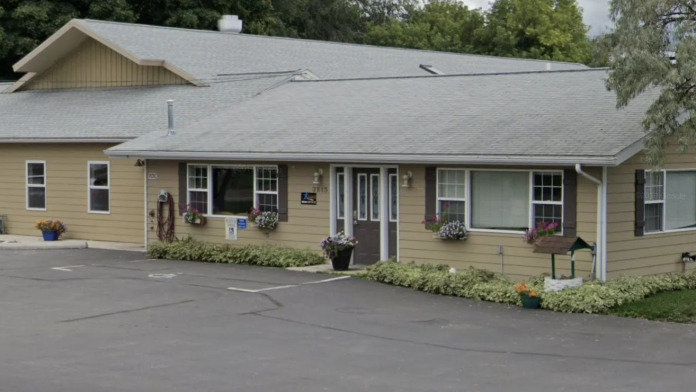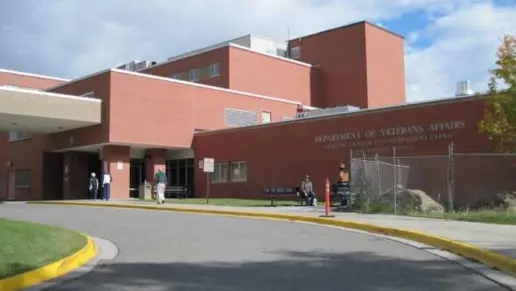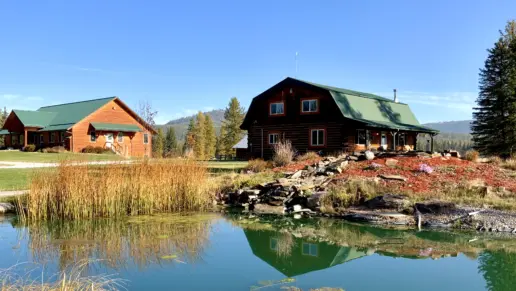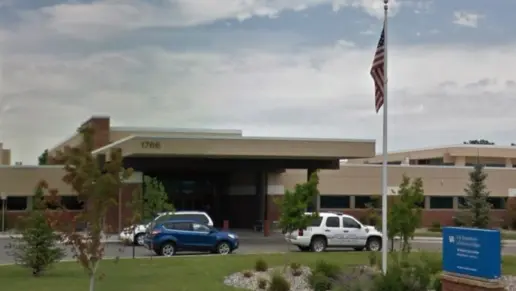Called the police the first night of stay to have my daughter removed. Will not return $500 "application"(?) fee that we were misled to think was a housing security deposit. Will not return phone calls! Not just bad business, this is bad Christianity.
About Teen Challenge
Teen Challenge - Missoula Women’s Campus offers inpatient treatment for men with alcohol and/or substance addiction. The faith-based program includes individual counseling, group therapy, education and more. Teen Challenge - Missoula Women’s Campus is located at Lolo, Montana.
An application fee of $500 is required at the time of admission to the program. Students earn approximately half of their tuition by working at TC Resale thrift stores during their program.
Teen Challenge – Missoula Women’s Campus is broken down into two Phases. The Induction phase, referred to as Phase III, begins when the student enters into a four (4) month residential program. Upon completing the requirements for Phase III, the student advances to the eight (8) month residential Phase IV training program. Phase IV provides continued application of life changing principles and guidelines for a successful development and discipleship process.
Latest Reviews
Rehab Score
Gallery

Location
Other Forms of Payment
Private insurance refers to any kind of healthcare coverage that isn't from the state or federal government. This includes individual and family plans offered by an employer or purchased from the Insurance Marketplace. Every plan will have different requirements and out of pocket costs so be sure to get the full details before you start treatment.
Self-pay involves paying for treatment out of your own pocket. You can use savings or credit, get a personal loan, or receive help from family and friends to fund your treatment. If you don't have insurance or your insurance plan doesn't cover a specific program, self-pay can help ensure you still get the care you need.
Sliding scale payments are based on a client's income and family size. The goal is to make treatment affordable to everyone. By taking these factors into account, addiction recovery care providers help ensure that your treatment does not become a financial burden to you or your family, eliminating one barrier to care.
Addiction Treatments
Levels of Care
Treatments
The goal of treatment for alcoholism is abstinence. Those with poor social support, poor motivation, or psychiatric disorders tend to relapse within a few years of treatment. For these people, success is measured by longer periods of abstinence, reduced use of alcohol, better health, and improved social functioning. Recovery and Maintenance are usually based on 12 step programs and AA meetings.
A comprehensive drug rehab in Montana treats the entire person. Treatment methods address all the underlying causes of addiction and give the individual the tools they need to live a healthy, drug-free life.
Many of those suffering from addiction also suffer from mental or emotional illnesses like schizophrenia, bipolar disorder, depression, or anxiety disorders. Rehab and other substance abuse facilities treating those with a dual diagnosis or co-occurring disorder administer psychiatric treatment to address the person's mental health issue in addition to drug and alcohol rehabilitation.
A combined mental health and substance abuse rehab has the staff and resources available to handle individuals with both mental health and substance abuse issues. It can be challenging to determine where a specific symptom stems from (a mental health issue or an issue related to substance abuse), so mental health and substance abuse professionals are helpful in detangling symptoms and keeping treatment on track.
Opioid rehabs specialize in supporting those recovering from opioid addiction. They treat those suffering from addiction to illegal opioids like heroin, as well as prescription drugs like oxycodone. These centers typically combine both physical as well as mental and emotional support to help stop addiction. Physical support often includes medical detox and subsequent medical support (including medication), and mental support includes in-depth therapy to address the underlying causes of addiction.
Programs


Clinical Services
Group therapy is any therapeutic work that happens in a group (not one-on-one). There are a number of different group therapy modalities, including support groups, experiential therapy, psycho-education, and more. Group therapy involves treatment as well as processing interaction between group members.
In individual therapy, a patient meets one-on-one with a trained psychologist or counselor. Therapy is a pivotal part of effective substance abuse treatment, as it often covers root causes of addiction, including challenges faced by the patient in their social, family, and work/school life.
The role of the counselor who applies motivational interviewing is to listen and reflect rather than offer advice or warnings. By expressing the client's own thoughts back to them, the therapist allows the client to reflect on their motivations and come to their own conclusions about their need for change.
Trauma therapy helps you process traumatic events that you may have witnessed or experienced. This is the first step to healing from these events, integrating them into a more coherent narrative, and improving your resilience.
Life skills trainings involve all the skills a person must have in order to function successfully in the world. These include time management, career guidance, money management, and effective communication. Truly successful addiction recovery is based on the ability to not only live substance-free, but to thrive. Life skills teaches the practical necessities of functioning in society, which sets clients up for success in life, and therefore sobriety.
Contact Information
3815 S 7th St W
Missoula, MT 59804


